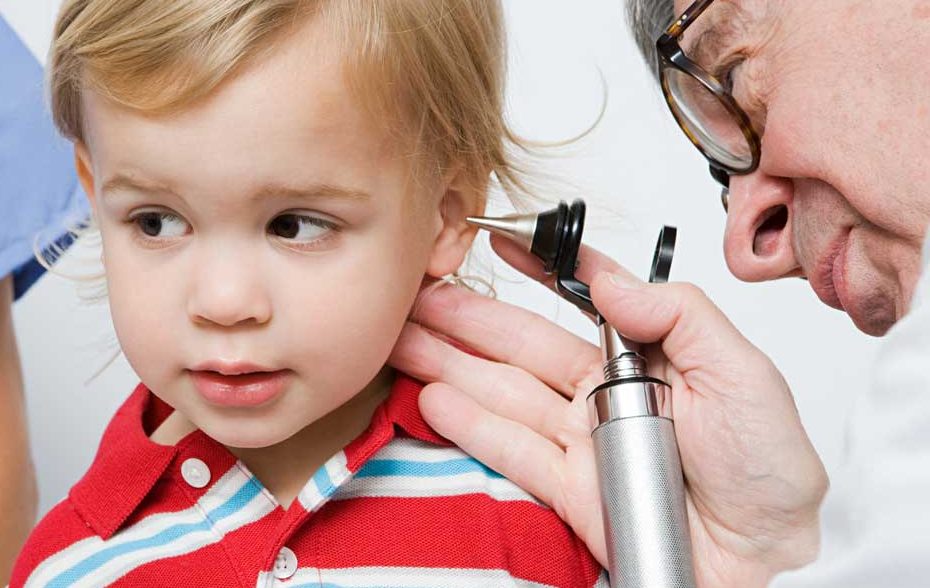Catch Autism Earlier with a Hearing Test

Have your child screened for hearing problems and evaluated for developmental issues if you see such signs or simply have a hunch something is wrong.
Autism most often isn't diagnosed until the age of four, when we expect children to be able to communicate easily in a variety of ways. One sign you could catch sooner: hearing loss in the range important for processing speech.
Researchers at the University of Rochester Medical Center have found an inner ear problem in children with autism that may be detectable even in infants. In the study, researchers used a device with miniature earplugs and a tiny highly sensitive microphone, which registered sounds from inner ear outer hair cells in response to certain tones or clicking sounds. The children do not have to communicate with the tester, as they would in an ordinary hearing test, since the device measures the inner ear response directly.
YOU MIGHT ALSO LIKE: Misdiagnosing Autism
“This study identifies a simple, safe, and non-invasive method to screen young children” said Anne Luebke, PhD, a co-author of the study and an associate professor in the University of Rochester Medical Center’s departments of Biomedical Engineering and Neuroscience.
Her team tested the ears of children between the ages of 6 and 17, roughly half of whom had been diagnosed with autism spectrum disorder (ASD) and none of whom were known to have hearing problems. In children with ASD, the inner ear didn’t respond properly in a specific frequency (1-2 kHz) associated with speech, and the worse the response the more severe their ASD symptoms.
The results may help explain why some children with ASD have trouble learning to speak. Hearing loss often causes children to develop later and have speech problems, even when they don’t have autism. They typically would have trouble hearing quiet sounds.
In Rochester Medical Center study, the autistic children were able to hear quiet sounds normally. The problem was specifically in the mid-range.
It helps to know what is normal for children who aren’t yet talking. In standard development, children begin to try to communicate before they can use words — babbling in reaction to you, waving, pointing, and turning and lighting up at the sound of their name — according to the Centers for Disease Control and Prevention (CDC).
Children between one and two often go through a phase of repeating the last word they’ve heard, over a few months. When Mom says, “Do you want juice?” Tommy might say “Juice!” in a declarative way, the same way an older child might say “Yes!”
An ASD child isn’t as interested in communicating, or as successful. He might repeat the word “juice” with your intonation, mimicking you rather than responding. The habit might continue past the age of two.
Another red flag is repeating words out of blue — sometimes called “pop-up” words — without addressing them to anyone. For example, an ASD child might repeat “train” over and over throughout the day for days or weeks — and then stop.
A typically developing two-year-old uses and understand about 50 words, speaks spontaneously, and “uses his words” to communicate his needs and desires. When he learns a new word, he quickly uses it appropriately, putting it in phrases of up to four words.
An ASD child might not be able to do some or all of those steps in his third year. When he gets older, he might parrot phrases he’s heard inappropriately. For example, if you ask, “How are you doing?” he might answer, “Don’t worry, tomorrow we’ll be back for more frolic and fun,” a quote from the end of SpongeBob.
Other bad signs are being more than typically rigid and focused on his own activities.
- Does he ignore people calling his name?
- Does he play with only a few toys?
- Does he get distressed and become difficult to calm down if you move certain objects?
- Is he especially intolerant of any changes in his routine?
The CDC gives the imaginary example of a boy named Mark, who was walking by the age of one. A month shy of two, he’s climbing on everything, as you’d expect. He has started to repeat words and, thanks to a beloved DVD, can count to 10 in Spanish. But if you ask his mother how he communicates and gets what he wants, she says that he usually tries to get things himself, and she can’t recall him pointing or gesturing. When Mark enters the room, he runs back and forth shouting “fast, fast, fast.” You call out “Mark,” but he doesn’t seem to hear you. He begins to spin the wheels of a toy train. Although the room is full of people, he shows no interest in them.
Have your child screened for hearing problems and evaluated for developmental issues if you see signs of autism or simply have a hunch something is wrong. With a diagnosis, he will be eligible for the help he needs.
Updated:
April 04, 2023
Reviewed By:
Christopher Nystuen, MD, MBA